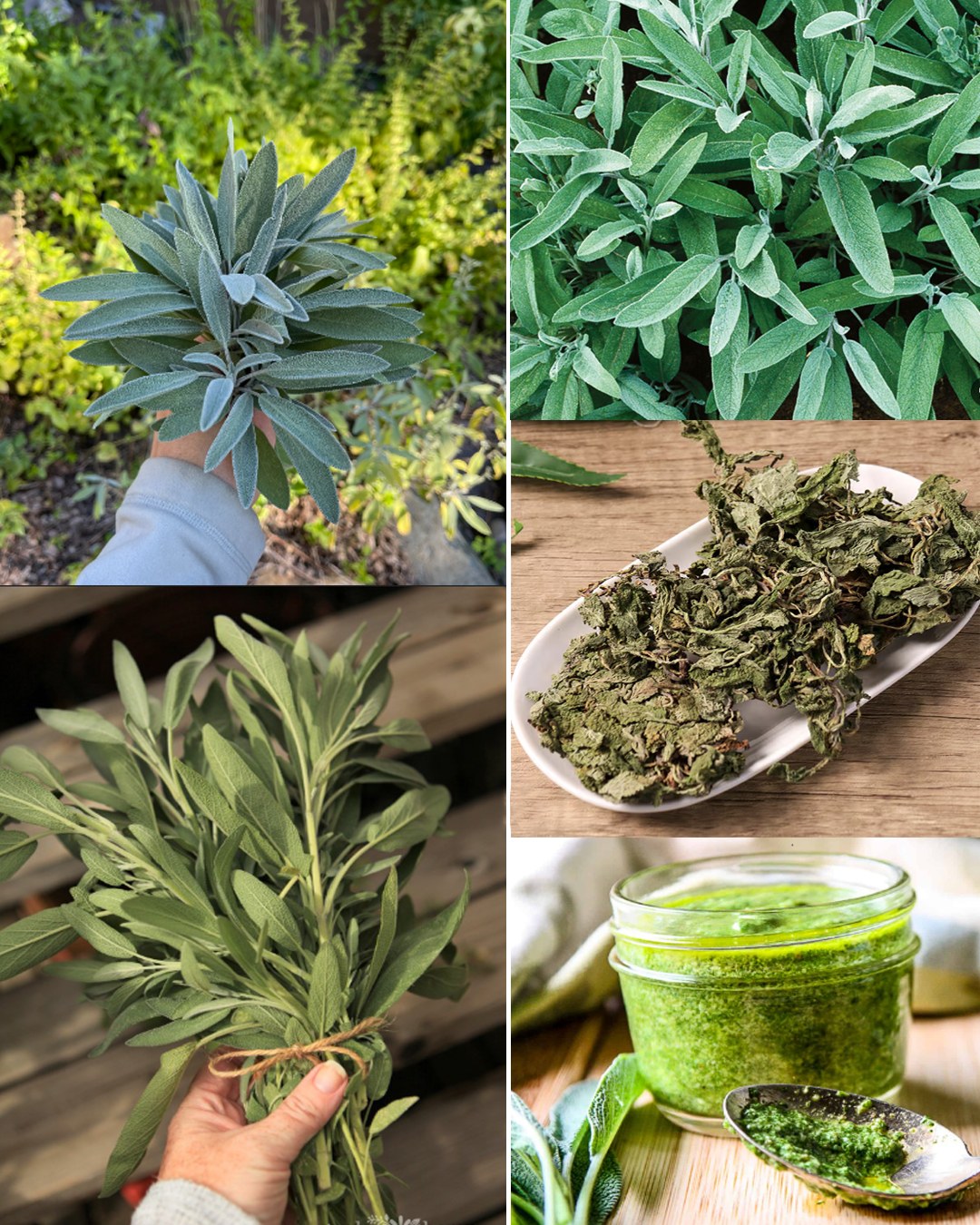Sage, known scientifically as Salvia officinalis, has long been revered not only as a culinary herb but also for its potent healing properties. Beyond its aromatic presence in kitchens worldwide, sage holds a rich history of medicinal use dating back centuries. From ancient civilizations to modern holistic practices, this herb continues to be celebrated for its diverse therapeutic benefits.

Historical Roots:
The use of sage for healing traces back to ancient civilizations such as the Greeks and Romans, who considered it a sacred herb with profound medicinal properties. Its name, derived from the Latin word “salvare,” meaning “to save” or “to heal,” speaks to its historical significance as a medicinal plant.
Holistic Healing:
In traditional medicine systems like Ayurveda and Traditional Chinese Medicine (TCM), sage is valued for its ability to promote overall well-being. It is believed to possess anti-inflammatory, antimicrobial, and antioxidant properties, making it a versatile remedy for various ailments.
Cognitive Enhancement:
Sage has garnered attention for its potential cognitive benefits, particularly in supporting memory and cognitive function. Research suggests that compounds found in sage may help protect against age-related cognitive decline and improve cognitive performance.

Digestive Support:
Sage has been traditionally used to aid digestion and alleviate digestive discomfort. Its natural compounds may help stimulate the production of digestive enzymes, easing bloating, gas, and indigestion.
Respiratory Health:
Inhaling sage-infused steam is a common remedy for respiratory issues like coughs, colds, and congestion. Its antimicrobial properties may help clear respiratory passages and soothe inflamed mucous membranes.
Emotional Well-being:
Sage has been associated with emotional balance and mental clarity. Its aroma is often used in aromatherapy to promote relaxation, reduce stress, and uplift the mood.
Skin Care:
Sage contains compounds that exhibit antimicrobial and anti-inflammatory properties, making it beneficial for skin health. It is used topically to soothe minor skin irritations, reduce inflammation, and promote healing.
How to Incorporate Sage into Your Wellness Routine:
There are numerous ways to harness the healing power of sage:
Culinary Uses: Add fresh or dried sage leaves to soups, stews, sauces, and roasted dishes for a flavorful and aromatic boost.
Herbal Tea: Brew sage leaves into a tea for a soothing and therapeutic beverage. Simply steep dried or fresh sage leaves in hot water for several minutes, then strain and enjoy.
Aromatherapy: Diffuse sage essential oil in your home or workspace to promote relaxation, mental clarity, and emotional balance.
Topical Applications: Create a sage-infused oil or salve to apply topically to the skin for its anti-inflammatory and antimicrobial benefits.
Sage Smudging: Burn dried sage bundles (also known as smudge sticks) to purify the air, cleanse negative energy, and promote spiritual well-being.
Caution: While sage is generally safe for culinary and medicinal use, it’s essential to use it in moderation, especially for pregnant or breastfeeding women. As with any herbal remedy, consult with a healthcare professional before incorporating sage into your wellness routine, especially if you have underlying health conditions or are taking medications.
The healing power of sage extends far beyond its culinary appeal. Whether enjoyed as a culinary herb, brewed into a soothing tea, or used in aromatherapy, sage offers a myriad of health benefits for the body, mind, and spirit. Embrace this ancient herb as a natural ally on your journey to holistic wellness.
News
(N) OFFICIAL : “Final verdict of the NCAA”: all of Lia Thomas’ Medals will be transferred to the beautiful Riley Gaines
The NCAA, college sports’ serial defendant, faces another federal lawsuit as more than a dozen female athletes sued the association, the University of Georgia and other defendants Thursday for alleged violations of Title IX, the Equal Protection Clause and the…
(N) Lia Thomas’ former teammates sue UPenn, Harvard and NCAA in lawsuit to scrub her records
Three former members of the University of Pennsylvania swimming team have taken action to expunge the women’s swimming records set by transgender former collegiate swimmer Lia Thomas. Grace Estabrook, Ellen Holmquist and Margot Kaczorowski, sued the university, Harvard University, the NCAA and the Ivy League Council…
(N) Openly transgender swimmer Lia Thomas speaks out against rhetoric regarding her NCAA win
Thomas’ Division I win sparked debates regarding transgender women playing women’s sports. The former UPenn swimmer says her transition has nothing to do with sports The unsigned statement comes after at least one anonymous member of the Penn women’s swimming…
(N) Lia Thomas out of Olympics after losing legal battle over transgender policy | Morning in America
Thomas made history in 2022, becoming the first transgender woman to win an NCAA swimming championship. Lia Thomas. Rich von Biberstein / Icon Sportswire via Getty Images file Transgender swimmer Lia Thomas lost a legal battle Wednesday challenging an effective ban on trans women competing…
(N) ‘SUCK IT UP’: Former UPenn swimmer sues Ivy league, NCAA over Lia Thomas
The controversy surrounding transgender athletes in competitive sports has once again made headlines as a former University of Pennsylvania swimmer has taken legal action against the Ivy League and the NCAA over their policies regarding transgender participation. The lawsuit, which…
(N) UPenn could face civil rights violation after trans athlete ban Lia Thomas
The University of Pennsylvania is among three colleges under investigation for a potential civil rights violation for allowing a transgender woman to compete in women’s sports. It follows President Donald Trump’s executive order banning transgender women from competing in women’s sports, where…
End of content
No more pages to load











